-
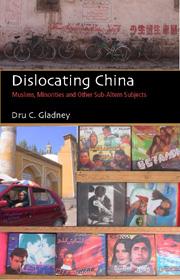
Dislocating China
-

The Anthropology of Time
Time - relentless, ever-present but intangible and the single element over which human beings have no absolute control - has long proved a puzzle. The author examines the phenomenon of time and asks such fascinating questions as how time impinges on people, to what extent our awareness of time is culturally conditioned, how societies deal with temporal problems and whether time can be considered a 'resource' to be economized. More specifically, he provides a consistent and detailed analysis of theories put forward by a number of thinkers such as Durkheim, Evans-Pritchard, Levi-Strauss, Geertz, Piaget, Husserl and Bourdieu. His discussion encompasses four main approaches in time research, namely developmental psychology, symbolic anthropology (covering the bulk of post-Durkheimian social anthropology) 'economic' theories of time in social geography and, finally, phenomenological theories. The author concludes by presenting his own model of social/cognitive time, in the light of these critical discussions of the literature. -
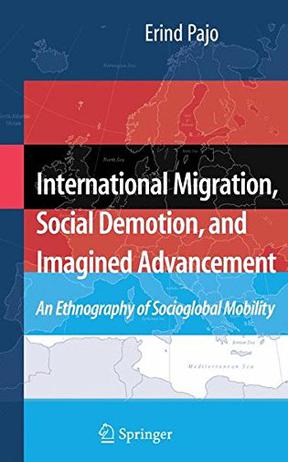
International Migration, Social Demotion, and Imagined Advancement
This book represents one of the first studies to look at the negative results of migration. Based on an ethnographic study focusing on Albanian migrants in Greece and Italy, the book discusses the reasons people leave their homeland for a "better life" - especially if that does not happen. It finds that imaginaries of the world as a social hierarchy might lie at the root of much of the contemporary international migration. -
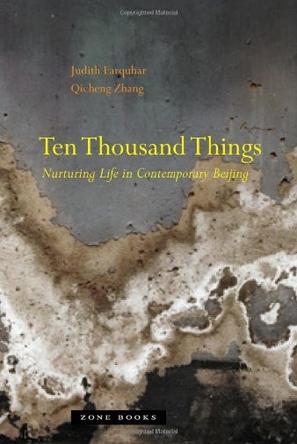
Ten Thousand Things
Ten Thousand Things explores the many forms of life, or, in ancient Chinese parlance "the ten thousand things" that life is and is becoming, in contemporary Beijing and beyond. Coauthored by an American anthropologist and a Chinese philosopher, the book examines the myriad ways contemporary residents of Beijing understand and nurture the good life, practice the embodied arts of everyday well-being, and in doing so draw on cultural resources ranging from ancient metaphysics to modern media. Farquhar and Zhang show that there are many activities that nurture life: practicing meditative martial arts among friends in a public park; jogging, swimming, and walking backward; dancing, singing, and keeping pet birds; connoisseurship of tea, wine, and food; and spiritual disciplines ranging from meditation to learning a foreign language. As ancient life-nurturing texts teach, the cultural practices that produce particular forms of life are generative in ten thousand ways: they "give birth to life and transform the transformations." This book attends to the patterns of city life, listens to homely advice on how to live, and interprets the great tradition of medicine and metaphysics. In the process, a manifold culture of the urban Chinese everyday emerges. The lives nurtured, gathered, and witnessed here are global and local, embodied and discursive, ecological and cosmic, civic and individual. The elements of any particular life -- as long as it lasts, and with some skill and determination -- can be gathered, centered, and harmonized with the way things spontaneously go. The result, everyone says, is pleasure. -
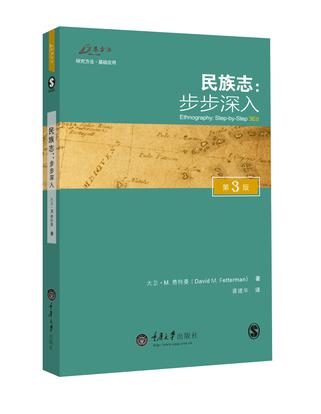
民族志:步步深入(第3版)
民族志不仅仅意味着一种方法论,它更是一种生活方式。 ——大卫•M. 费特曼 • 操作手册 本书作者大卫•M. 费特曼博士条分缕析地向初学者展示民族志调查的每个环节、每个步骤,这使本书成为一本不可多得的、贴心实用的操作手册。 • 经验宝藏 作为一位在多文化的田野中“穿行”数十年的老手,他所积累的丰富的民族志调查资料就是一个经验宝藏。 • 反思帮手 书中对田野作业时可能会遇到的难题、节点有许多深入剖析,对正在实践的民族志学者而言,本书亦可成为他们反思其研究的帮手。 • 知识更新 本版新增了最新的民族志调查技术和设备的介绍,为读者组织了一次愉快的知识更新之旅。 -
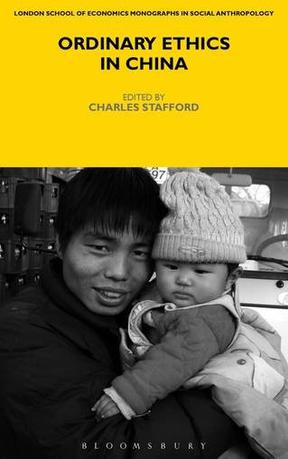
Ordinary Ethics in China
Drawing on a wide range of anthropological case studies, this book focuses on ordinary ethics in contemporary China. The book examines the kinds of moral and ethical issues that emerge (sometimes almost unnoticed) in the flow of everyday life in Chinese communities. How are schoolchildren judged to be good or bad by their teachers and their peers - and how should a 'bad' student be dealt with? What exactly do children owe their parents, and how should this debt be repaid? Is it morally acceptable to be jealous if one's neighbours suddenly become rich? Should the wrongs of the past be forgotten, e.g. in the interests of communal harmony, or should they be dealt with now? In the case of China, such questions have obviously been shaped by the historical contexts against which they have been posed, and by the weight of various Chinese traditions. But this book approaches them on a human scale. More specifically, it approaches them from an anthropological perspective, based on participation in the flow of everyday life during ethnographic fieldwork in Chinese communities.